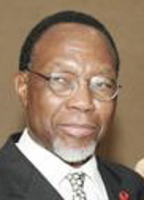 The precious metal platinum is what catalytic converters use
to convert the toxic by-products of petrol combustion to something less
poisonous. Platinum is not easy to find
in the Earth’s crust and 80% of it is found in South African nickel and copper
mines. One of the earlier companies to
see the value in these mines was Tiny Rowlands’ Lonrho. Rowlands was a classic self-made 20th century capitalist who turned Lonrho
from an obscure farming and mining company into a multinational conglomerate.
The precious metal platinum is what catalytic converters use
to convert the toxic by-products of petrol combustion to something less
poisonous. Platinum is not easy to find
in the Earth’s crust and 80% of it is found in South African nickel and copper
mines. One of the earlier companies to
see the value in these mines was Tiny Rowlands’ Lonrho. Rowlands was a classic self-made 20th century capitalist who turned Lonrho
from an obscure farming and mining company into a multinational conglomerate.
Rowlands had no compunction with dealing with apartheid
era South Africa for which hypocrite Prime Minister Ted Heath called Lonrho “the
unacceptable face of capitalism."
But while Rowland was making enemies in London, he knew how to do business in
Africa. He made many friends among black African leaders including Nelson
Mandela, Kenneth Kaunda and Muammar Gadhafi. When Mandela came to power, he
didn’t throw out Lonrho but instead bestowed on Rowlands South Africa’s highest
honour the Order of Good Hope in 1996.
By then Rowlands was on the outer at Lonrho after he
financed a film exonerating the Libyans of Lockerbie. In 1999 Lonrho refocussed on its mining core
business and renamed itself as Lonmin. The focus of that mining was the
wealthy Bushveld Complex of northern
South Africa around Johannesburg, home to the world’s largest collection of
platinum group metals. It was a money-spinning venture as platinum prices
soared. Xstrata saw the value and bought up 30% of the company. Of the
245 tonnes of platinum sold in 2010, almost half was used for vehicle emission control devices.
But by then the bottom was starting to fall out of Lonmin’s
market. In March 2008 the global financial crisis was about to strike and platinum was
one of the first casualties. The price started to plummet. Lonmin were never
big fans of unions and suffered constant safety stoppages because of accidents,
numerous labour strikes, and unplanned plant and equipment shutdowns. Yet they
were also protected by an ANC-backed National
Union of Mineworkers whose leader Cyril Ramaphosa ended up on the board of
Lonmin.
But as the NUM flirted with management, its membership fled
to more radical unions. There was also simmering resentment from locals who
felt they were not getting their fair share of the mining boom. Social welfare organisation Bench Marks Foundation said low wages and social
disintegration, crime, murder, rape and prostitution, unemployment and poverty
amid the third richest platinum mine in the world, created an incubator rife
for worker and community discontent.
On August 16, Lonmin shares plummeted 7 percent on news an illegal strike had paralysed all its South African
operations. At its flagship operation in Marikana near Rustenburg, 100km north
of Johannesburg, Lonmin threatened to
sack 3,000 rock drill operators if they fail to end a wildcat pay strike. Clashes between unions claimed nine lives,
including two police officers.
Jeffrey Matunjwa of the Mineworkers and Construction Union
defended the strike action. He told Al Jazeera they couldn’t stand by while
bosses and senior management were getting fat cheques. "And these workers
are subjected to poverty for life,” Matunjwa said. He said despite 18 years of post-apartheid
democracy, most of the 28,000 mineworkers were still earning $360 a week “under
those harsh conditions underground."
Matters came to a head on August 16. Members of an elite
South African police unit were called into Marikana. They opened fire killing
34 strikers and wounding 78 others. It was
the largest single massacre on South African soil since Sharpeville in 1960 and a bloody reminder South African police had never departed from
their apartheid-era role “as the brute enforcer of state power.”
Police claim the strikers shot first, for which there is
some evidence and many strikers were armed. But there is
also evidence the return fire from police wasn’t indiscriminate. The Daily Maverick
estimated the majority of those who died were killed beyond the view of cameras
at a nondescript collection of boulders some 300 metres away from the protest.
They said heavily armed police hunted down and killed the miners in cold blood.
The only charges laid have been against 270 strikers initially
charged with public violence and later murder. These charges were laid under
the doctrine of ‘common purpose”, an apartheid era conceit kept by the new
rulers. Their lawyers write to Prime
Minister Zuma saying it was inconceivable the strikers would have killed their own
people. Last Sunday the Director of
Public Prosecutions for the North West dropped the common purpose charges. They didn’t
explain why but defended the initial decision on “a sound legal principle” and a “prosecution duty” to go for the highest
charges.
Yesterday a court released 100 of the 270 miners as most of the unions signed a peace pact with a Lonmin
desperate to rid itself of the unwanted international attention. One union and
non-union workers have not signed up to the deal so it remains a worrying time.
Lonmin has been losing 2,500 ounces of
daily production since the strike started a month ago. With the price of
platinum recovering since July
to the point where only silver has gained more this year among precious metals,
every day of lost production is costing them a lot of money. The company will be looking for its state
links to do whatever it takes to get their mines operational again.

















